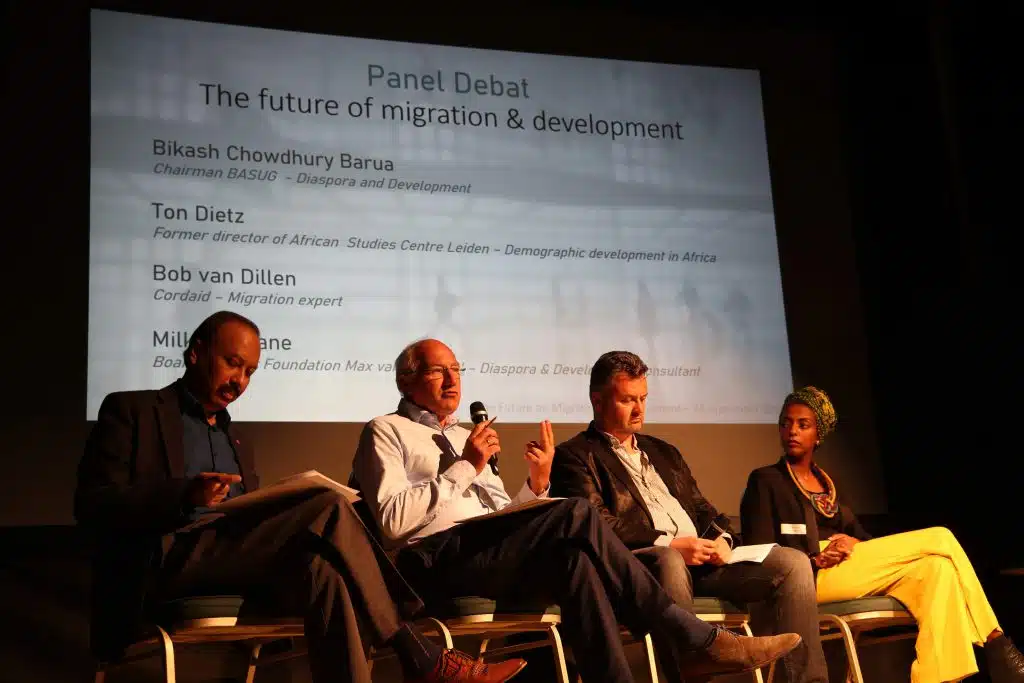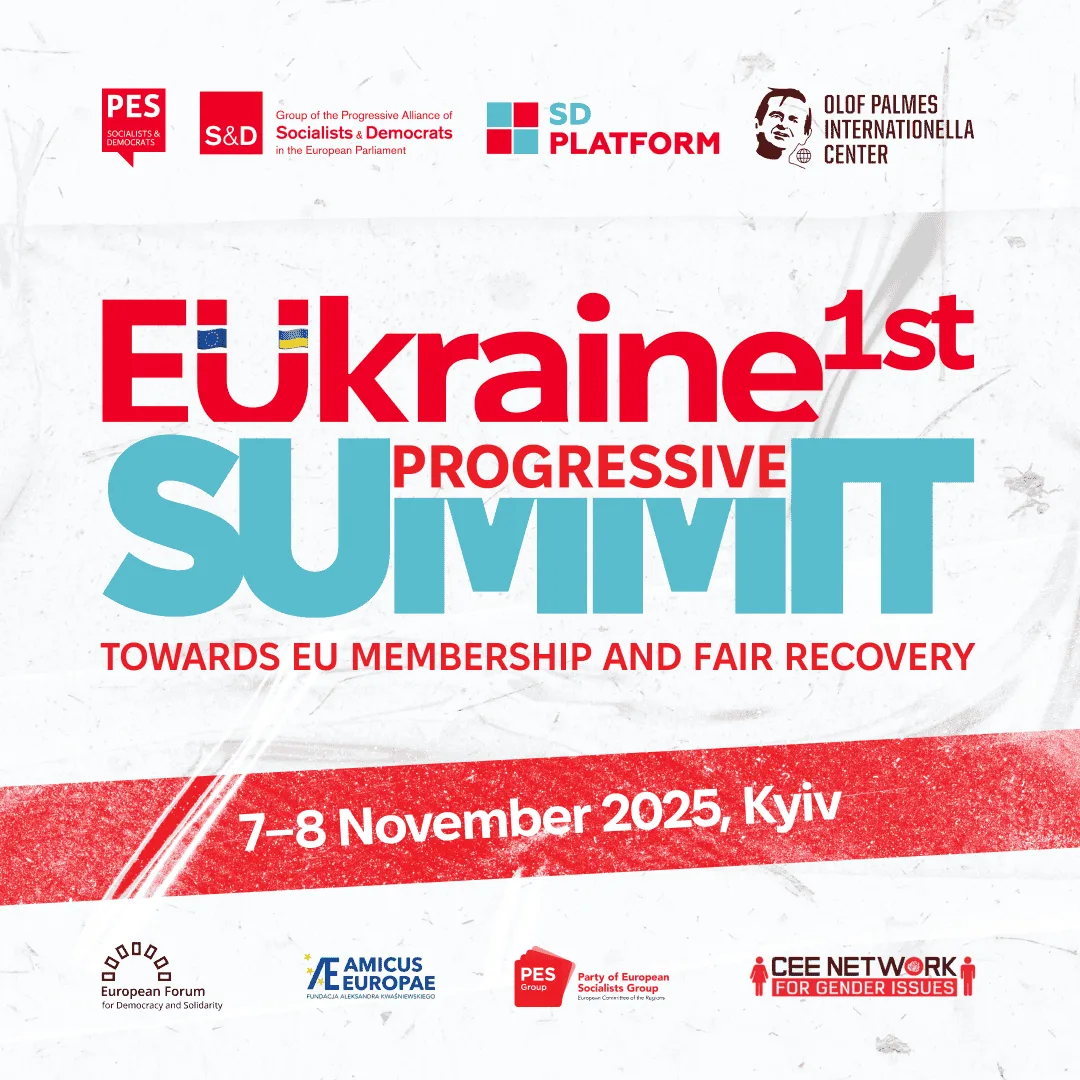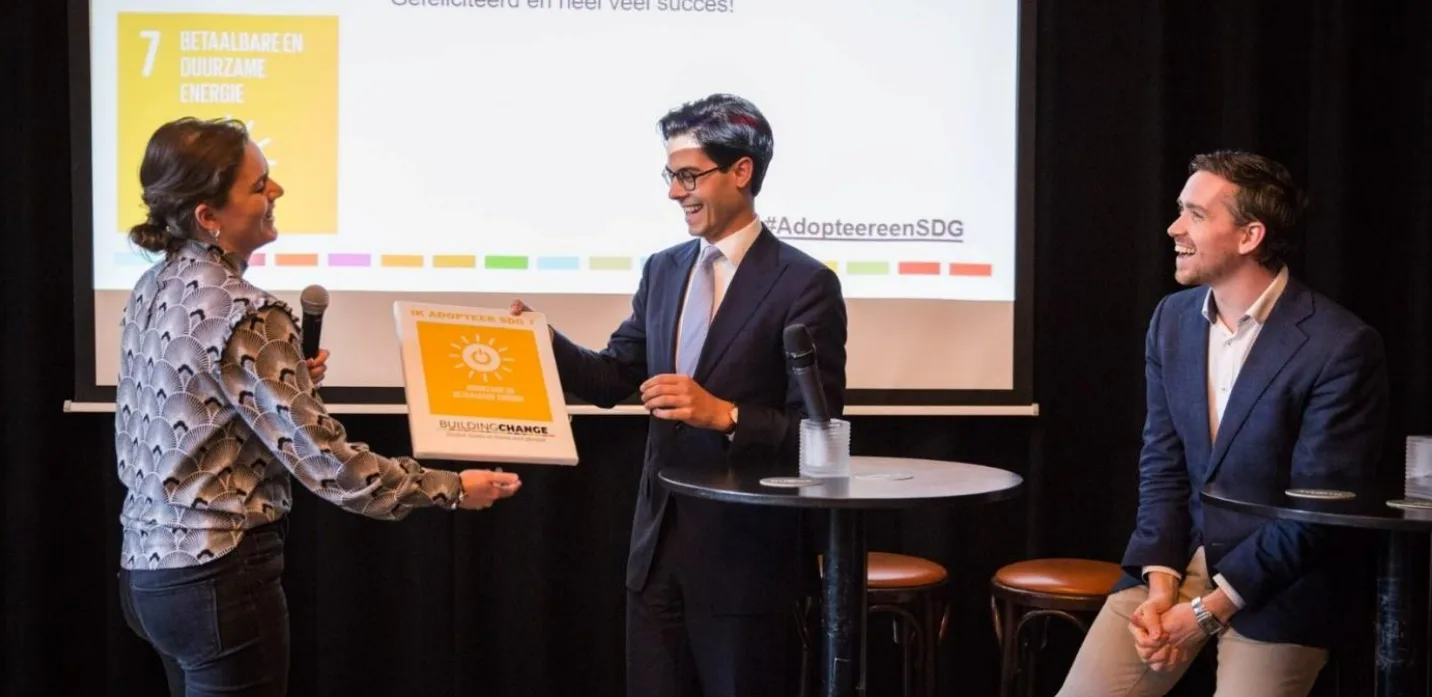"We need to break open the debate on migration with a focus on the future," said Seada Nourhussen, editor-in-chief of OneWorld at the opening of the Future of Migration and Development event. OneWorld and Partos are jointly organising a project on the Future of Migration and Development in which they made an appeal a while ago to NGOs, researchers, journalists and artists, both national and international, to submit substantive and creative ideas on the future of migration and development. On the basis of these initiatives, the event Future of Migration and Development was born, which FMS and Cordaid joined as partners.
A varied programme; video, acrobatics and a panel
Due to the open-call by OneWorld and Partos, the event consisted of a varied programme. The event sought to create cross-sectoral linkages and work out new possible directions for migration and development. The plenary part consisted of a content panel that focused on what the current state of migration is and where we want to go in the future. Images sometimes speak louder than words, which is why there were several creative submissions. For instance, PositiveNegative had a catchy animation made about migration, which hit the audience hard, and Amoukanama Circus told about acrobats in Guinea through dance and acrobatics.
After the plenary session, we explored the various topics in a bit more depth through five dialogue tables: framing of migration; migrants in the lead; circular migration and legal pathways; hosting refugees in the region, and youth employment and migration. The third table, on circular migration and legal pathways was organised by FEPS, together with FMS.
Building bridges
This afternoon was not just listening and watching, but in particular thinking, discussing and working together towards solutions. In other words, bridges were built and more bridges need to be built in the future when we talk about migration.
Migration is an important social issue that will only grow in importance in the coming years. Ton Dietz, former director of the African Studies Centre Leiden, for instance, stressed that migration from Africa has only just begun and that we should stop spreading myths about migration. Indeed, with growth in population, information and economy, the migration of Africans to Europe will only increase. Olave Nduwanje, judge, politician and activist said in a video message: "I invite you to start thinking about ways in which we can prevent, recite and repair migration." Not with the aim that migration stops, but to switch.
More listening and collaboration
When talking about migration, it is often a story of us and the others. This dichotomy between them and us needs to be broken. It is time to build bridges and work together. Sarah Casteran of Mercy Corps said: "We need to involve people who are not yet involved". Milka Yemane, founder of Lemat Foundation, stresses that the diaspora needs to be much more involved in the migration debate. The diaspora really needs to be integrated into already existing institutions. They are the bridge between Europe and, in this case, Africa.
It is also important how we talk about migration. We need to become more realistic. Seada put it very strongly: "Migration is not a problem, and not a solution to your problem. Migrants are just people". As NGOs, we should also put this first.
Photos: Sera Koolmees, Partos




